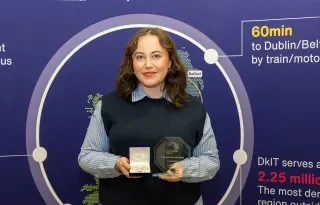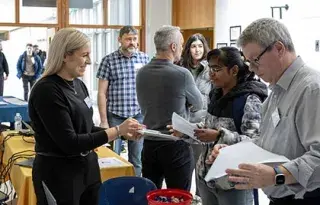Bachelor of Engineering (Hons) in Civil Engineering
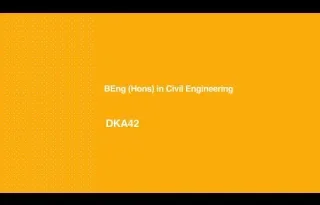
Search to find a different course
Course Overview
This course helps students identify and build their skills in problem solving, design and management. Students manage and design projects of all scales as individuals and as part of teams, on topics such as Hydrology, Structural Analysis, Geotechnical and CAD. Sustainability, renewable energy, and environmental engineering are integral parts of this course.
This course places emphasis on broad civil engineering design and development enabling students to focus their specific interests during the final year.
What makes this course different
Work Placement
In Year 3 students undertake an industry work placement where they gain important contacts within the industry to help them in their future careers.
Excellent Career Prospects
90% of graduates in employment or further study after 6 months of graduation. 78% earning up to €50k after 6 months of graduating. (DkIT/HEA survey)
Engineers Ireland Accreditation
This course has Engineers Ireland accreditation to Associate Engineer level, A.Eng., which is internationally recognised.
Understanding the Industry
Civil engineering is about protecting, creating, and improving our everyday environment. It involves the planning, design, and construction of facilities that we require for living, for industry and for transport; roads, bridges, buildings, railway, airports, water supply, drainage, flood management and sustainable energy schemes such as wind farms, ocean energy or hydroelectric stations.
Career Opportunities
Future Careers:
- Consulting civil engineer
- Contracting civil engineer
- Estimator
- Structural engineer
- Water engineer
In these areas:
- Engineering
- Construction
- Water Service
Graduates work at

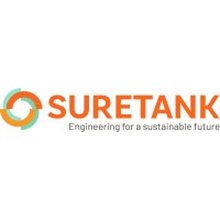
Course Delivery and Modules
This programme is full time over four years with students attending two semesters each year. The course combines lectures, practicals, tutorials and project work. Students are guided from their first year to become more independent learners as they reach the final years of the programme.
- Computing for Engineering
- Engineering Mathematics 1
- Engineering Professional Practice (both semesters)
- Engineering Science
- Materials Science
- Statics
- Dynamics
- Electrical and Electronic Principles
- Engineering CAD
- Engineering Mathematics 2
- Engineering Professional Practice (both semesters)
- Civil Engineering Surveying 1
- Construction Materials
- Engineering Mathematics 3
- Environmental Engineering 1
- Structural Design 1
- Structural Mechanics
- Civil Engineering Surveying 2
- Civil Project Management 1
- Engineering Mathematics 4
- Fluid Mechanics
- Soil Mechanics
- Structural Detailing
- Environmental Engineering 2
- Geomatics for Engineers
- Geotechnical Engineering 1
- Highway & Traffic Engineering
- Statistics and Probability using R
- Structural Design 2
- Full Semester Work Placement
- Individual research Project (Year long)
- Civil Engineering Project Management 2
- Environmental Engineering 3
- Geotechnical Engineering 2
- Renewable Energy for Civil Engineers 1
- Structural Analysis
- Hydrology and Hydrogeology
- Renewable Energy for Civil Engineers 2
- Structural Design 3
- Integrated Design Project
- The Engineer in Society
- Transportation
Work placement
Work placement is an important feature of the programme and takes place in the second semester of Year 3 of this programme. The placement is a full-semester duration, and we expect that most students will have the opportunity to continue with the employer for the summer period. This offers students the ability to add to their professional skill sets and start to build career networks.
Professional Accreditations
Engineers Ireland accreditation
This course is recognised by Engineers Ireland as meeting international standards commensurate with Associate Engineer (A. Eng) standing.
Engineers Ireland’s accreditation is an objective evaluation and approval of third level engineering programmes, ensuring that they meet international standards, the needs of the engineering profession and broader responsibilities to society, environment and economy.
Accreditation is a periodic assessment of a programme of engineering education against accepted standards. The hallmark of a professional engineer is the ability to apply the learning outcomes gained during study to real world situations. These are assessed as working experiences or learned competences.
Graduates of accredited programmes, at the appropriate standard, may go on to achieve one of the professional titles of Chartered Engineer, Associate Engineer and Engineering Technician. Find out more about the Engineers Ireland Accreditation Criteria.
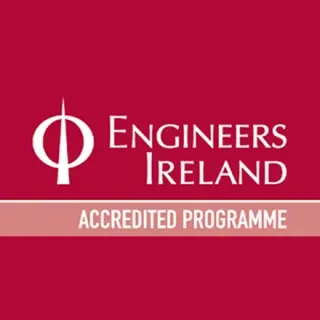
Education Progression
MSc in Renewable Energy Systems
Fees and Funding
Please find information on fees and funding here.
Entry requirements
In addition to the standard entry requirements below, Maths Grade H6 or O2 is also required for Leaving Certificate or QQI applicants. A Merit in QQI Maths for STEM NFQ (5N0556) will also meet this specific Mathematics entry requirement.
Applicants from NI/UK require a GCSE Maths Grade 8/A or AS Level Grade C or A Level Grade D.
- Standard Requirements for Leaving Certificate Applicants
- Standard Requirements for UK/NI Applicants
- Standard Requirements for QQI-Further Education Applicants
Additional Maths Entry Exam at DkIT:
If you have failed to meet the additional Maths Entry Requirements for this course (but you have met the basic maths entry requirement for a level 8 course at DkIT), you have a second chance at meeting these additional Maths Entry Requirements by sitting the DkIT additional Maths Entry Examination, held in August of each year. More details about the maths entry exam.
Recent CAO points
Course Related Videos

How to apply
Apply on CAO
All standard entry first-year applicants must apply for entry through the CAO. See Important application dates for CAO and information for specific applicant types below:
Advanced Entry & Transfer Applications
Advanced Entry is for applicants who have previous educational achievements and/or work experience and want to be considered for direct entry into year 2, 3, or 4 of a course. This includes students looking to transfer to DkIT from another Higher Education provider.
International Application (non-EU)
International Applicants (not from or living in the EU) can apply through an agent or directly to DkIT to study this course.
Ask us a Question
If you have a question about the Bachelor of Engineering (Hons) in Civil Engineering please ask it below and we will get back to you.
Course News
View all NewsDisclaimer: All module titles are subject to change and for indicative purposes only. All courses are delivered subject to demand and timetables are subject to change. Elective Module options will only run subject to student numbers. The relevant Department will determine the viability of each elective module option proceeding depending on the number of students who choose that option. Students will be offered alternative elective modules on their programme should their preferred elective option not be proceeding. Award Options for Common Entry Programmes: The relevant Department will determine the viability of each award option proceeding depending on the number of students who choose either option. If the numbers for one of the Award options exceed available places, students for this option will be selected based on Academic Merit (highest grades).

